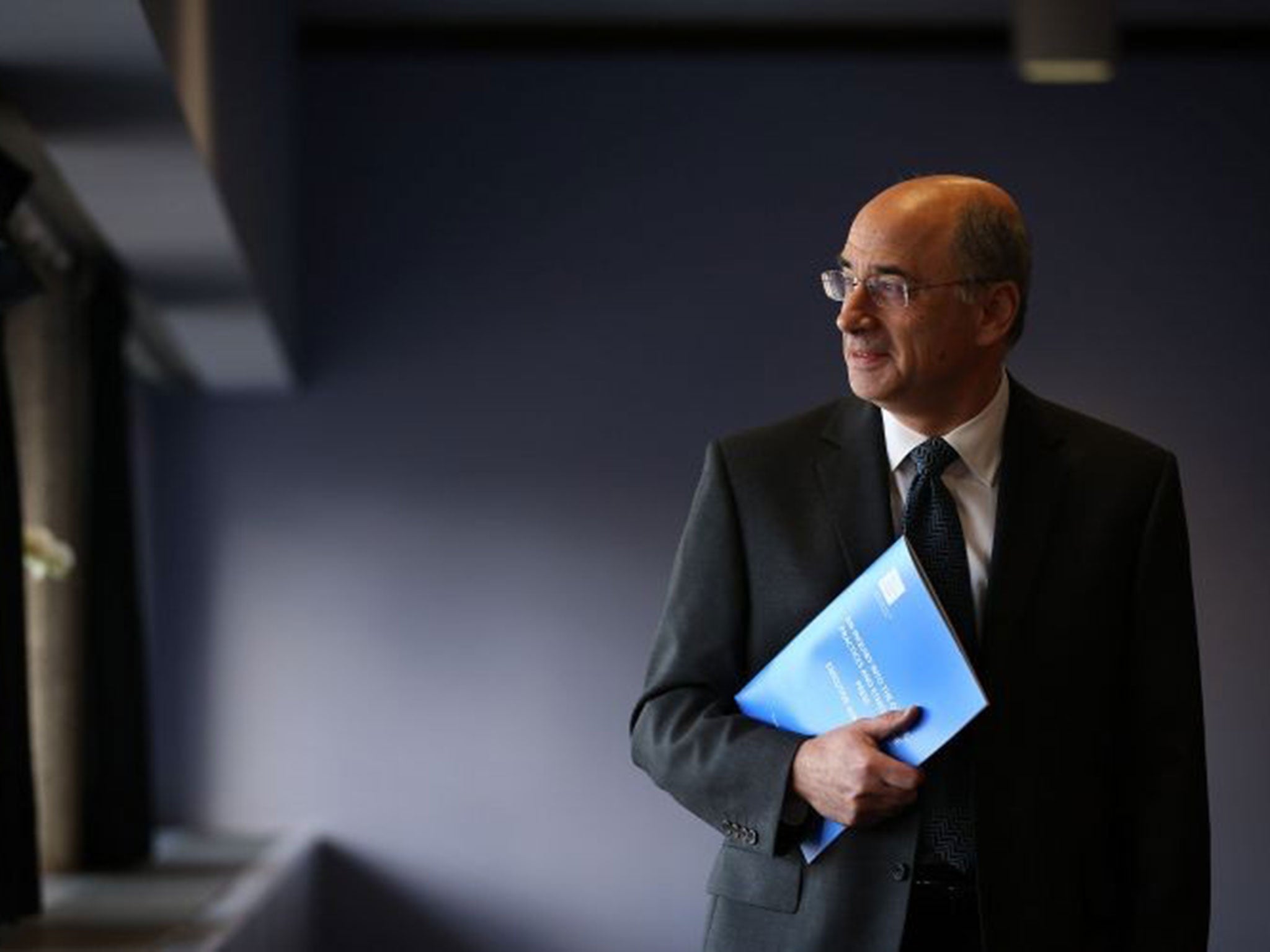Whatever its merits, a second Leveson inquiry is not going to happen
Andy Burnham, the shadow Home Secretary, called on the Government this week to re-open the Leveson Inquiry, but are there any relevant lessons to be learnt?


Your support helps us to tell the story
From reproductive rights to climate change to Big Tech, The Independent is on the ground when the story is developing. Whether it's investigating the financials of Elon Musk's pro-Trump PAC or producing our latest documentary, 'The A Word', which shines a light on the American women fighting for reproductive rights, we know how important it is to parse out the facts from the messaging.
At such a critical moment in US history, we need reporters on the ground. Your donation allows us to keep sending journalists to speak to both sides of the story.
The Independent is trusted by Americans across the entire political spectrum. And unlike many other quality news outlets, we choose not to lock Americans out of our reporting and analysis with paywalls. We believe quality journalism should be available to everyone, paid for by those who can afford it.
Your support makes all the difference.Remarkably, it is nine and a half years since the “rogue” News of the World reporter Clive Goodman and the investigator Glenn Mulcaire were arrested over allegations of phone-hacking.
The subsequent scandal led to the closure of NOTW, several high-profile criminal trials, the end of the Press Complaints Commission and a lengthy judicial inquiry – not to mention millions of pounds paid out by publishers to victims of hacking. Civil proceedings relating to hacking by Mirror Group journalists continue.
For the newspaper industry, the resulting examination of press ethics and practices had considerable ramifications. There is a keener awareness in newsrooms of the types of activity that are not permitted by the law or by regulatory codes, and more attention is given to the handling of readers’ complaints. The inquiries that followed the hacking disgrace served some purpose.
Is the industry perfect? No. Can it ever be? Probably not. There will always be critics who regard elements of the press as irreparably grotty – either because of their tone and style, or because of their politics.
Andy Burnham, the shadow Home Secretary, called on the Government this week to re-open the Leveson Inquiry, which was originally split in two to avoid a conflict with criminal trials then pending. It was envisaged that once proceedings at the Old Bailey were over, Leveson would move on to examine the “extent of unlawful or improper conduct within News International”, the role of the police in that investigation, and alleged corrupt links between police and the media.
It is not hard to see why some – especially victims of hacking or intrusion – want “Leveson II” to proceed. We may know quite a lot about dodgy journalists, but we know less about the extent to which corrupt relationships between police and press made it easier to intrude into the private lives of innocent people and potentially covered up wrongdoing.
Operation Elveden, the investigation of payments by journalists to public officials, gave us a flavour of the way some police officers were prepared to sell information. It is hard to believe there were not some even murkier dealings. The family of Daniel Morgan, a private investigator murdered after apparently uncovering high-level police corruption, believes Leveson II could be the key to solving the riddle of his death.
In reality, there is little appetite in government for Leveson II, and here’s why. Aside from cost – and the fatigue brought on by “Leveson I”, the unfinished Chilcot inquiry and the revolving chairship of the investigation into historical child sex abuse – there is the simple objection that the nature of the media has radically changed, even in the past half dozen years.
Likewise, the relationship between journalists and police has fundamentally shifted: indeed, it is so far from being cosy as to be on occasion unworkable (which may be the lesser of two evils).
Inquiries into past events have their place. Re-examining Hillsborough has been hugely important. Leveson, though, was always framed as an examination of current and recent practices. Even elements of Part I feel anachronistic now. Part II might shine a light on some misdeeds, but the idea that it will have much relevance to today’s journalists, or shape the future of an ever more youthful, increasingly digital media industry, is perhaps fanciful.
Join our commenting forum
Join thought-provoking conversations, follow other Independent readers and see their replies
Comments